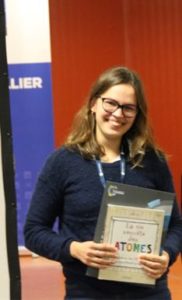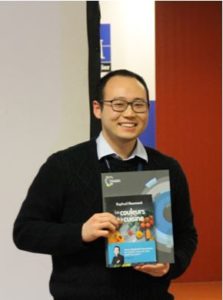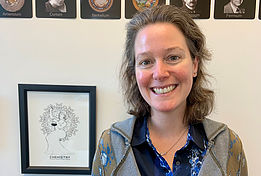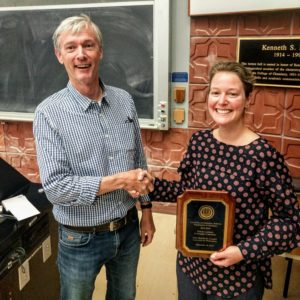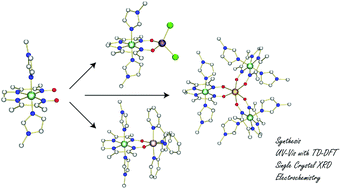As part of the celebrations for the International Year of the Periodic Table , Dalton Tansactions reccently published a themed issue looking at the central role of the d-block materials.
Guest Edited by Catherine E. Housecroft, Christine M. Thomas and Mi Hee Lim, this collection of reports and perspectives highlights the important role that d-block metals play in sustainable energy, catalysis, diagnostics and medicine, and chemical education.
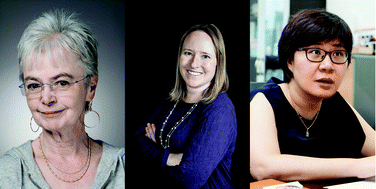
You can find a selection of the articles below and check out the full collection online here:
Evolution and understanding of the d-block elements in the periodic table
Edwin C. Constable
Dalton Trans., 2019, 48, 9408-9421
DOI: 10.1039/C9DT00765B, Perspective
A look at periodic trends in d-block molecular electrocatalysts for CO2 reduction
Changcheng Jiang, Asa W. Nichols and Charles W. Machan
Dalton Trans., 2019, 48, 9454-9468
DOI: 10.1039/C9DT00491B, Perspective
Structure and reactivity of the first-row d-block metal-superoxo complexes
Shunichi Fukuzumi, Yong-Min Lee and Wonwoo Nam
Dalton Trans., 2019, 48, 9469-9489
DOI: 10.1039/C9DT01402K, Perspective
A d10 Ag(I) amine–borane σ-complex and comparison with a d8 Rh(I) analogue: structures on the η1 to η2:η2 continuum
Alice Johnson, Antonio J. Martínez-Martínez, Stuart A. Macgregor and Andrew S. Weller
Dalton Trans., 2019, 48, 9776-9781
DOI: 10.1039/C9DT00971J, Paper
Cobalt-based molecular electrocatalysis of nitrile reduction: evolving sustainability beyond hydrogen
Simon N. Child, Radoslav Raychev, Nathan Moss, Benjamin Howchen, Peter N. Horton, Christopher C. Prior, Vasily S. Oganesyan and John Fielden
Dalton Trans., 2019, 48, 9576-9580
DOI: 10.1039/C9DT00773C, Communication
Coordination design of cadmium ions at the 4-fold axis channel of the apo-ferritin cage
Satoshi Abe, Nozomi Ito, Basudev Maity, Chenlin Lu, Diannan Lu and Takafumi Ueno
Dalton Trans., 2019, 48, 9759-9764
DOI: 10.1039/C9DT00609E, Paper

Submit your work to Dalton Transactions– Check our website for handy tips and guidelines or find out more about the benefits of publishing with the Royal Society of Chemistry.











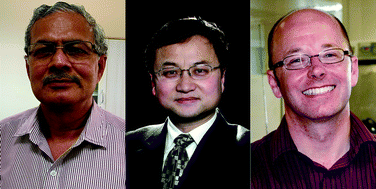
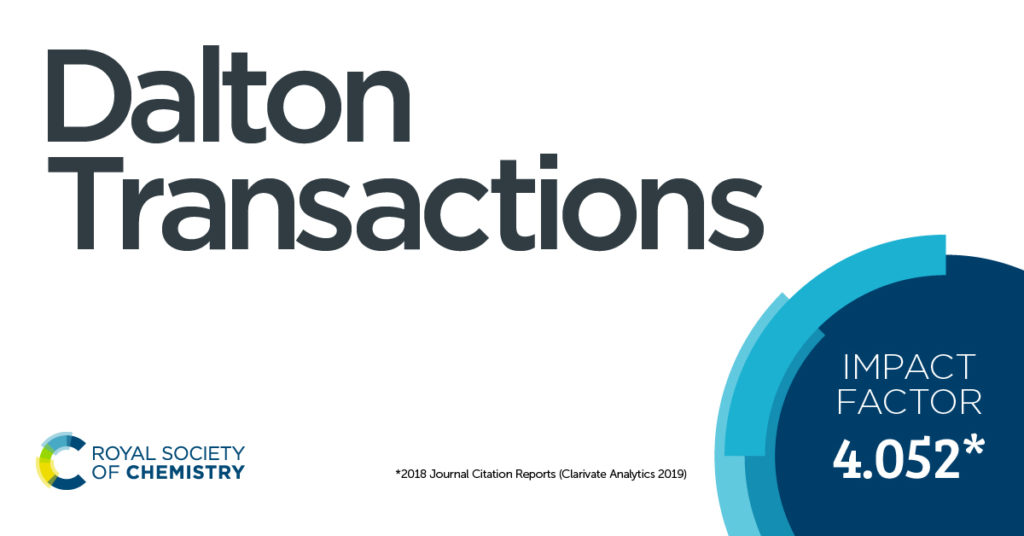
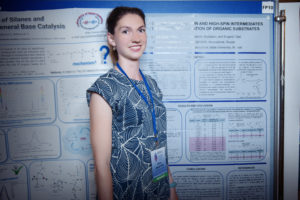
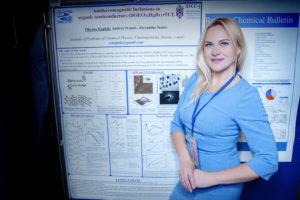
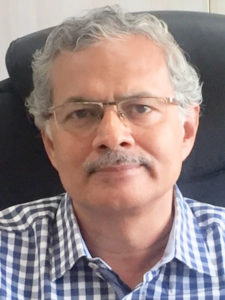 Moving from an Editorial Board member position to an Associate Editor, Professor Chandrasekhar brings a wealth of experience to his new role. He obtained his Ph.D. from the Indian Institute of Science, Bangalore, in 1982. After a post-doctoral stint at the University of Massachusetts, Amherst, he joined the Indian Institute of Technology Kanpur in 1987 and he is currently at the Tata Institute of Fundamental Research Hyderabad as a Distinguished Professor and Centre Director.
Moving from an Editorial Board member position to an Associate Editor, Professor Chandrasekhar brings a wealth of experience to his new role. He obtained his Ph.D. from the Indian Institute of Science, Bangalore, in 1982. After a post-doctoral stint at the University of Massachusetts, Amherst, he joined the Indian Institute of Technology Kanpur in 1987 and he is currently at the Tata Institute of Fundamental Research Hyderabad as a Distinguished Professor and Centre Director.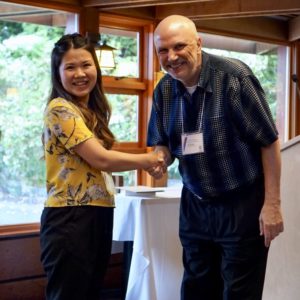
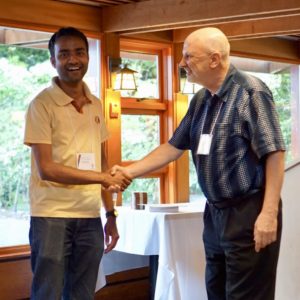
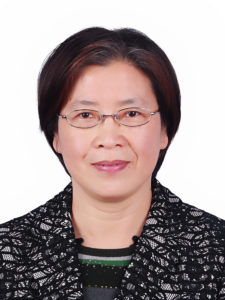 Li-Min joins us as an Associate Editor based at Nanjing University where she received her Ph.D. degree in Chemistry in 1992. She then joined Nanjing University as a faculty member, and became a lecturer (1992-1997), associate professor (1997-2002) and professor (2002-present). She was a postdoctoral researcher at the University of Zurich in Switzerland (1994-1996) and a visiting scholar at the University of Houston in the United States (1999-2000), ETH Zurich in Switzerland (2007) and Kyoto University in Japan (2012). She has published over 230 research papers.
Li-Min joins us as an Associate Editor based at Nanjing University where she received her Ph.D. degree in Chemistry in 1992. She then joined Nanjing University as a faculty member, and became a lecturer (1992-1997), associate professor (1997-2002) and professor (2002-present). She was a postdoctoral researcher at the University of Zurich in Switzerland (1994-1996) and a visiting scholar at the University of Houston in the United States (1999-2000), ETH Zurich in Switzerland (2007) and Kyoto University in Japan (2012). She has published over 230 research papers.